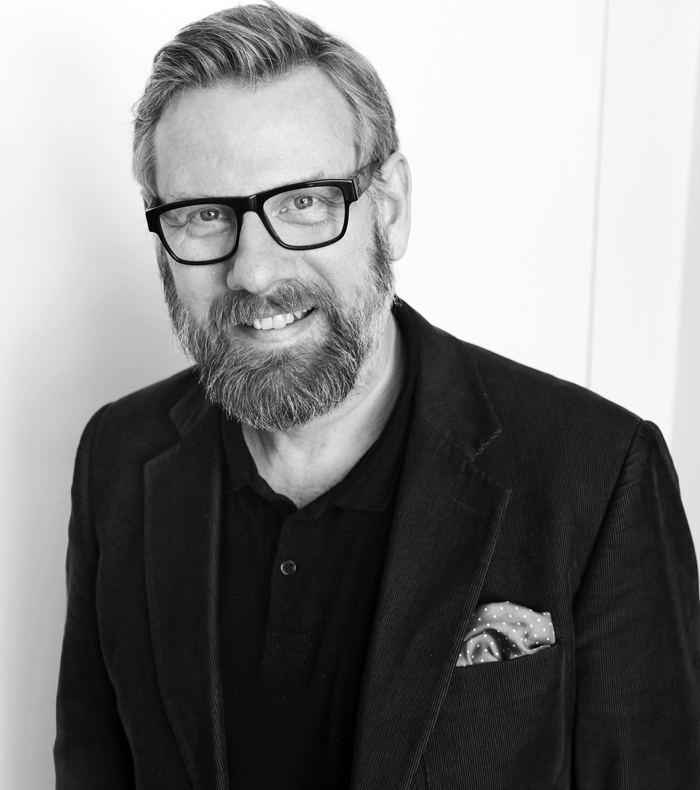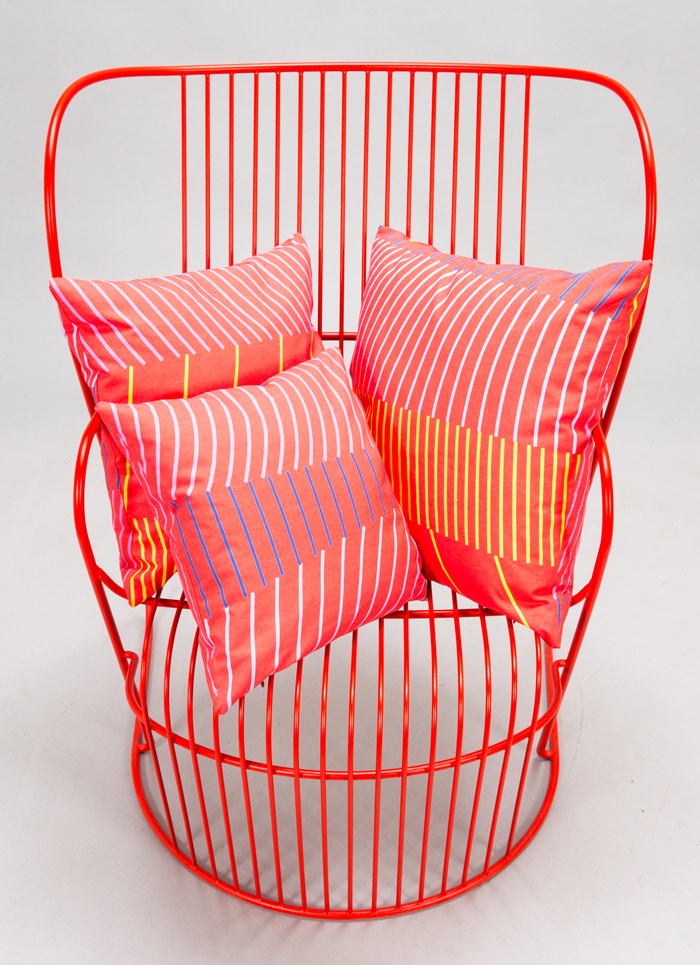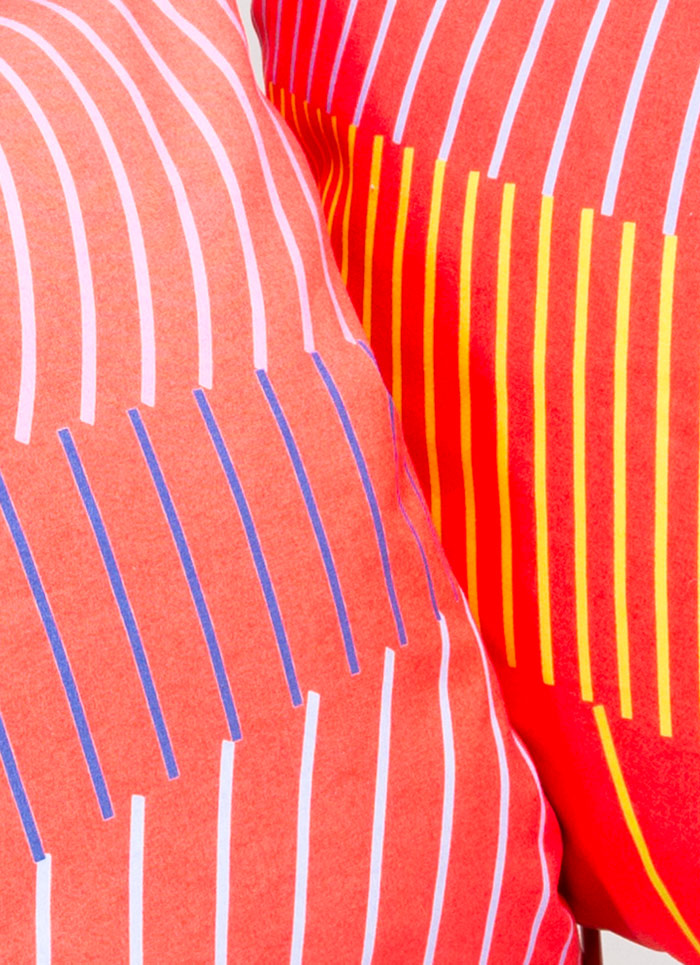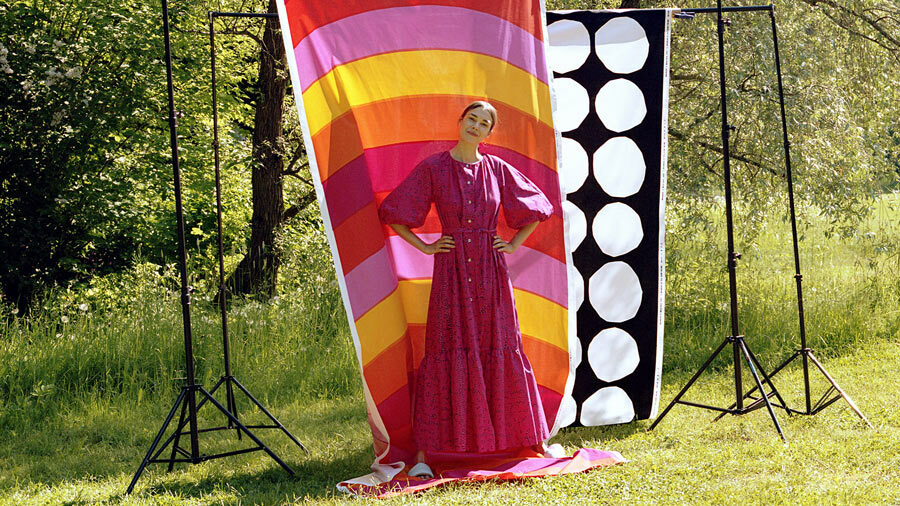Bukowskis & Marimekko in conversation with designer Björn Dahlström
Bukowskis & Marimekko Björn Dahlström
Finnish design house Marimekko turns 70 in 2021. In celebration of the artists who helped shape the iconic brand, a special anniversary auction of vintage dresses and original art pieces by Marimekko collaborators takes place 10-19 September.
One of the auction’s featured artists is Björn Dahlström, the Swedish designer behind the now-classic RO pattern he created for Marimekko.
A graphic designer gone industrial designer, Dahlström works both two and three-dimensional in his commissions for the likes of Iittala, Magis, and Cbi. He has received multiple awards for his designs. His works are represented in museums worldwide, including the National Museum in Stockholm, the National Museum of Art, Architecture and Design in Oslo, and the Victoria and Albert Museum in London.
What was your personal relationship with Marimekko before the collaboration? Any childhood memories or other personal encounters?
– I remember having a blue Jokapoika shirt that my mother had bought for me. I think my family had a curious relation to the colourful universe of Marimekko. It was not unusual to eat lunch or dinner on beautiful tablecloths with Marimekko patterns.

How did your collaboration with Marimekko come about?
– I was already involved with two other Finnish companies, Iittala and Hackman, which were very positive experiences. At the time, I was quite frequently visiting Helsinki, and as I have a background working with graphics and had always admired Marimekko, it seemed a good idea to contact them.
I thought that it would be great just to have a look at this iconic institution. I was very impressed with what I saw, and we discussed the possibility of me proposing some ideas. At the same time, Marimekko had an upcoming collaboration with Harri Koskinen and Ilkka Suppanen, so it turned out that my work could click into that collection.
What was the inspiration behind RO, your pattern design for Marimekko?
– I wanted to create a pattern with two levels of information. First, I wanted the repetition to be very simple; a large object that repeated itself on a monochrome background without variations. Then when looking at it more closely, I wanted it to be the second level of smaller details – lines that tangle a little when they meet and colours bleeding slightly behind the lines. So, the inspiration was more to play with these two levels and the actual detailing.
I actually made this pattern using the same software as I usually use for building 3d objects; all the lines were mathematically generated.
The RO design became incredibly popular. Why do you think that is?
– I think it is something with the simplification of the actual pattern and the levels of detailing that catch the attention.

Björn Dahlström, a 'Kaskad' lounge chair for Nola Design Furniture, Sweden, with three 'Vågsvall' cushions, Marimekko.
Before moving into industrial design, you worked a lot with graphic design. Did pattern and textile design take you back to those years and that field of design?
– Yes, it certainly did. It was incredibly exciting. It was a feeling of my world coming together full circle.
What’s it like working on a personal design in the Marimekko printing factory that has been home to so many other designers and artists? Can one help but be influenced by that?
– It was an amazing experience. I will never forget it. There is a certain atmosphere that comes to you strongly. So many fantastic prints have come out of these machines. I have previously had the opportunity to work with glass for a few different companies, and glass is very intense. The heat and the tempo are special. The Marimekko printing factory is a bit similar, not for the heat, but it was an extremely intense experience watching the tests being printed.
What is your fondest memory from the collaboration?
– I would say the day when I was invited to visit the archive, all these drawers containing all the prints since the start of the company. Every pattern in every colour scheme, all meticulously organised. It was absolutely mesmerising.
You have a remarkably diverse design portfolio ranging from cookware to furniture, bicycles, and textile design. Despite their physical differences, are there also creative similarities in the way you approach your work and, in the visual signature you leave behind?
– I have always wanted my work to have a graphic quality. Graphic design is about communication, and this is something I wanted to take with me when I transitioned into the 3-dimensional world of industrial design. An object should have the ability to communicate with the user to help her understand it. So, to me, graphic characteristics create a link between all these disciplines.

Would you like to tell us about your object that’s part of this auction and why you chose it?
– I decided to use my 2007 print Vågsvall. The pattern is abstract, based on slightly curved lines that are repeated and distorted with the help of the 3d-software. The pattern has a basic colour, red in this case, and the lines differ. Three cushions are upholstered with the textile. The cushions are then put into a Kaskad lounge chair painted in bespoke red to match the cushions. Kaskad is also designed in this particular software, so there is a visual kinship between the pattern and the chair. The Kaskad lounge is, by the way celebrating its own 10-year anniversary, manufactured and sold by Swedish company Nola Design Furniture.
What’s the last thing you were really excited about, personally or professionally?
– I just learned that Nola has dispatched quite a few Kaskad chairs (the more upright sitting version) to the Institut Suédois in Paris. They will be used in the courtyard and sculpture park for open-air theatre, concerts, cinema and other events. It’s a lovely place located in the Hôtel de Marle in the Marai in the centre of Paris, well worth a visit.

Estimate
600 EUR

Estimate
2 000 EUR

Estimate
200 EUR

Estimate
800 EUR

Estimate
1 800 EUR

Estimate
400 EUR

Estimate
5 000 EUR

Estimate
300 EUR

Estimate
1 500 EUR

Estimate
1 400 EUR





















































